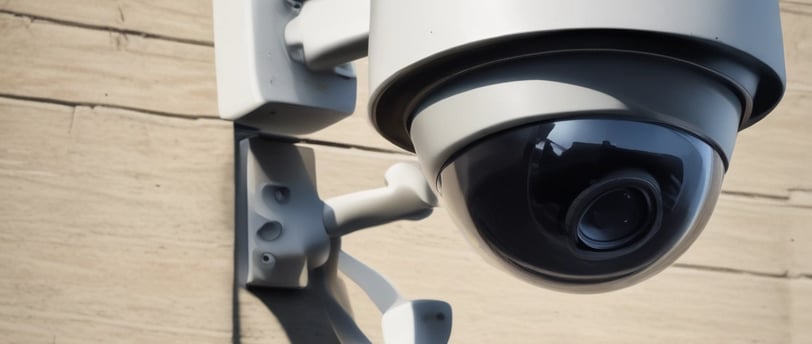The Psychology of Surveillance: Understanding How CCTV Cameras Deter Crime
12/28/20241 min read


Introduction to Surveillance Psychology
The psychology of surveillance plays a crucial role in modern society, particularly regarding crime deterrence. CCTV cameras have become ubiquitous in urban environments, serving as both a crime prevention tool and a means of gaining public trust. This blog post delves into the psychological effects of surveillance, particularly how CCTV cameras can influence behavior and reduce crime rates.
How CCTV Cameras Influence Behavior
Surveillance is often perceived as a form of control, instilling a sense of awareness among individuals. The presence of CCTV cameras alters an individual's mindset, leading to what is known as the 'observer effect.' This phenomenon suggests that people are more likely to modify their behavior when they know they are being watched. Studies indicate that the recognition of surveillance can prompt individuals to act in a socially acceptable manner, thus, leading to a decrease in criminal activities. The mere sight of a camera can act as a psychological barrier, discouraging individuals from engaging in unlawful behaviors.
The Efficacy of Surveillance in Crime Reduction
Numerous studies have demonstrated that the strategic placement of CCTV cameras can lead to significant declines in crime rates across various environments, such as city streets, public transport systems, and commercial establishments. A report published in the Journal of Experimental Criminology found that the installation of CCTV resulted in an average crime reduction of up to 51%. This reduction can be attributed not only to the direct monitoring of criminal acts but also to the psychological deterrent effect these cameras exert on potential offenders. Furthermore, the likelihood of being apprehended increases with the awareness of surveillance, often making individuals reconsider criminal intentions.
Public Perception and Trust
The impact of CCTV cameras on public perception is undeniably significant. Many citizens feel safer knowing that they are being monitored. This increased sense of security can enhance community trust in law enforcement and local authorities. However, it is also essential to strike a balance between security and privacy concerns. While the benefits of surveillance are apparent, there are ongoing debates about the implications of constant monitoring on civil liberties. Thus, transparency in the deployment of CCTV systems is crucial to foster acceptance and minimize apprehensions regarding privacy invasion.
In conclusion, the psychology of surveillance through CCTV cameras reveals a complex interplay between crime deterrence and public perception. The mere presence of these cameras can effectively influence behaviors, reinforcing lawful conduct while simultaneously decreasing crime rates. As society continues to grapple with issues related to privacy and security, understanding the psychological implications of surveillance will be vital in creating a balanced approach to public safety.
